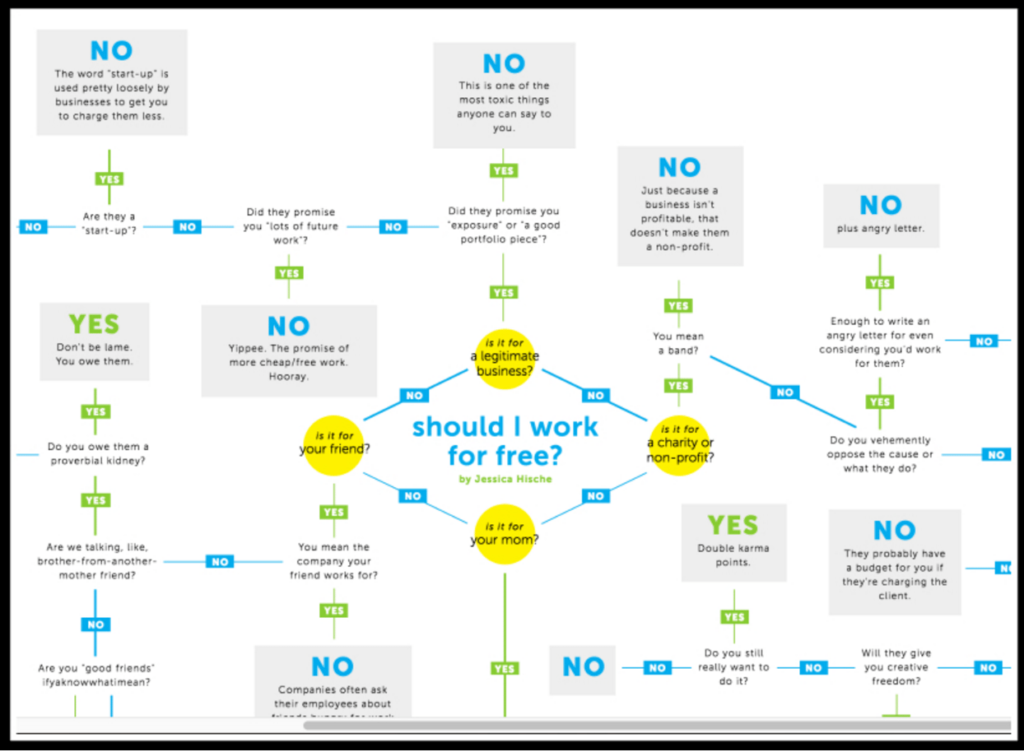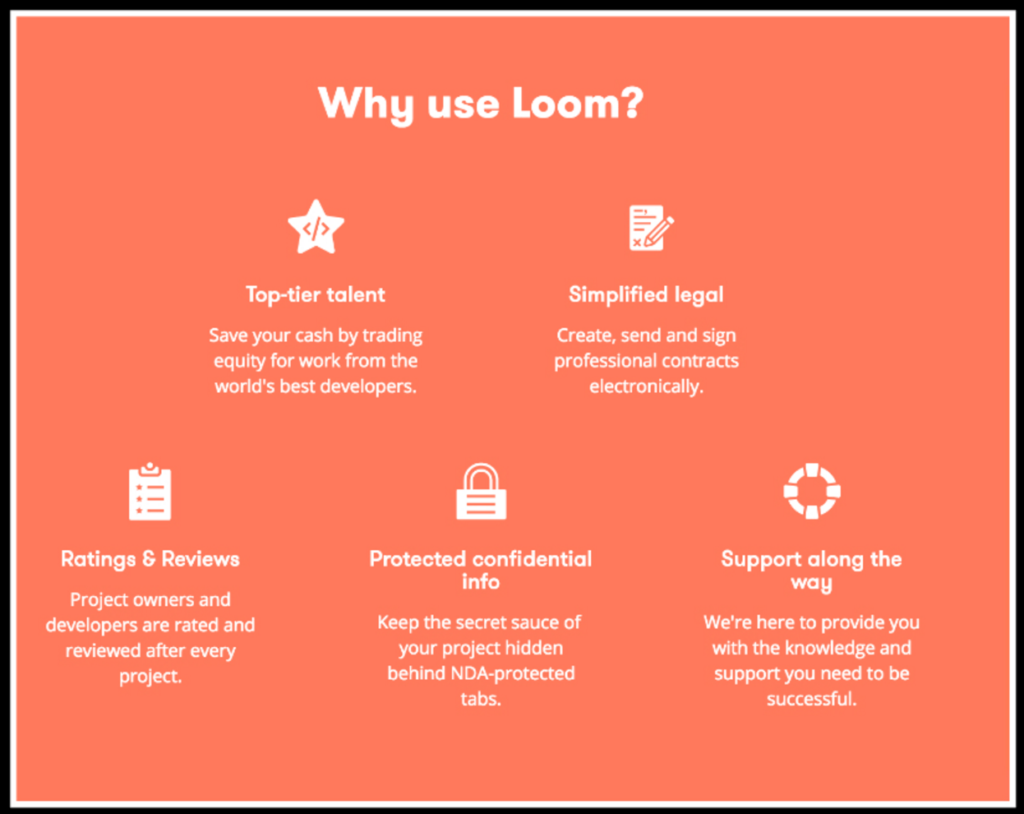When you’re a newly minted WordPress developer, you are met with many challenges, but perhaps most taxing is, where to look for new clients. It can be a challenge of epic and perplexing proportions.
So it probably shouldn’t surprise anyone that so many new developers feel compelled to work for free.
It happens to a lot of developers in the beginning of their careers, judging from the results for the exact phrase search “should you work for free”:
The solution to the “work for free” quandary really boils down to how you answer three simple questions:
- How do so many WordPress developers get sucked into the work-for-free trap right out of the gate?
- Is there any circumstance in which free work is appropriate?
- What options do WordPress developers just starting out in the field have instead of agreeing to work for free?
Let’s look at each of these questions in more depth.
How New Developers Get Trapped Into Working For Free
People just beginning a career in WordPress development generally confront a few common challenges:
- No positive word of mouth or referrals, because no former clients
- Little to no experience
- Little to no client work in portfolio
In fact, most new developer portfolios consist of a few personal sites and an assigned project completed for class credit.
All this can trigger a growing sense of panic. And as you’ve probably experienced in your own life, panic doesn’t usually lead to great decision-making.
So it’s understandable that a new developer might think “I’ve got to do something to increase my visibility and get some exposure for my work.” Once this assumption is accepted as true, the developer is primed to accept the arguments of those who’d cheerfully take advantage of it.
New developers get targeted with this request for free services more often than experienced developers (though it happens to them, too.)
People in need of website development services can tell from a skimpy portfolio that the developer doesn’t have a lot of experience. Consequently, they often believe — consciously or not — that the developer will be open to working for something other than cash compensation.
From that point, it’s a short jump to thinking “well, when you get right down to it, aren’t we really doing them a favor by giving their work some exposure they wouldn’t otherwise get?”
That’s how the “work-for-free” pitch gets rationalized by people who really ought to know better – people who would probably never consider working for free themselves.
Why Working For Free Is A Bad Idea
Is it really such a bad idea to work for free? For the most part, yes.
Working for free tends to devalue what you do — both personally, to the individual client, and in the aggregate, to the market at large.
Fair market value of goods and services is basically the price agreed on by a willing buyer and seller without any duress or outside pressure. So to a large extent, the value of your services is the price the market is willing to pay for those services.
When you offer to work for free, the message you send to that specific client and to the market at large is “My services aren’t worth anything.”
Of course, that’s not what you mean — and it’s not what most prospective clients will consciously conclude, either.
The problem is that we humans make choices based on a number factors, and not all of them are entirely logical and rational.
We value what we pay a premium for. Psychology researchers have learned quite a bit about how we behave and respond to various pricing strategies, including this insight: The more we pay for it, the more we value what we buy.
Quite often, prospective clients look at the lowest price quotes as an indication of lack of skill. In other words, they firmly believe that you get what you pay for.
There’s also the impact on the market as a whole. Driving the perceived value down hurts everyone who offers professional WordPress services. It devalues those skills, which you spent so much time (and money, probably) learning and honing.
Finally, even if future prospects don’t know that you worked for free, you do. There’s a real risk that once you’ve conquered your reluctance to give your skills away, it’ll be easier to do it again in the future.
When Working For Free Might Be A Good Idea
You’re not alone in asking the question about when and if you should work for free. It’s what prompted the creation of the website ShouldIWorkForFree.com:
So is it ever a good idea to work for free?
It could be a great idea — in one specific scenario.
When an honest-to-goodness, IRS-certified non-profit organization asks if you can help them out, and legitimately cannot afford to pay even a discounted rate for your services, you can say “yes” if you’re so inclined, without any fear of negative repercussions.
What about start-ups? When you’re offered the task of creating a website for a buzzy start-up, it’s tempting to say yes. But start-ups should be businesses, first and foremost.
Instead of working for free for a start-up, you may want to consider working for equity, perhaps utilizing a matching platform such as Loom.
What New WordPress Developers Can Do Instead
Instead of working for free, try getting creative with your marketing processes. Here are a few suggestions that might help:
- If you’re a decent public speaker, approach your local Chamber of Commerce and offer to do a free “lunch and learn” presentation for its members on some aspect of digital marketing related to WordPress and websites.
- Make the rounds downtown of any local, family-owned small businesses.
- Check out your local newspaper and radio advertising for announcements of new businesses in your area and approach them.
- Sign up for, and become active on, Quora and other question-answer sites where you can offer free advice on WordPress and website-related questions. Optimize your site profile to include your own URL and the words “WordPress developer.”
- Look into sponsoring local wedding fairs and expos — lots of engaged couples want to create sites for their weddings.
- Make yourself a fixture at the local coffee shop — and bring lots of business cards with you. Work on your networking skills while you’re there and offer help if anyone expresses website frustration. Also, make sure the staff knows what you do — tip them well, and they’ll happily refer you to prospective clients.
Now, over to you. Experienced developers, have you ever worked for free? Would you recommend it to new developers? If you’re a new developer, we’d love to know under what circumstances you’d be willing to work for free. Share your thoughts in the comments section below.




1 Comment
Join the conversation